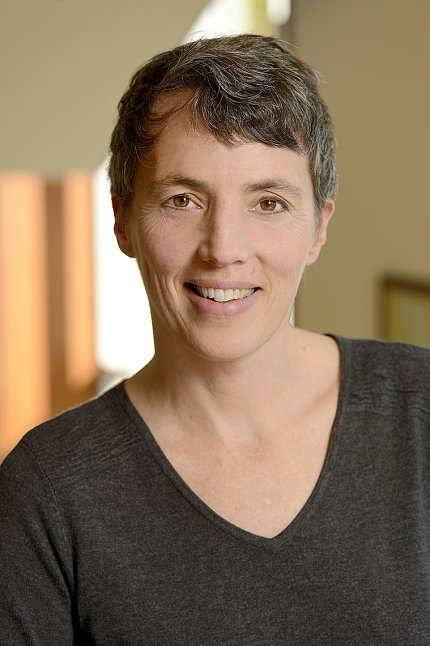‘capable’
Nurse Researcher Applies Lessons Learned as a Former Lobbyist

Dr. Sarah Szanton, health equity and social justice endowed professor at Johns Hopkins School of Nursing, did not start out as a nurse researcher. In her former life, she was a health policy advocate. During her NINR Director’s lecture, “Leveraging Strengths to Achieve Health Equity: From Clinical Insight to Program of Research,” she made clear how what she learned as a lobbyist could be applied to creating sustainable change in research.
Szanton’s work focuses on health equity and empowering older adults to live in the place of their choice as they age, while maintaining quality of life. In her talk, she showed real-life examples of the impact and sustainability of the program she co-developed: Community Aging in Place—Advancing Better Living for Elders (CAPABLE).
In CAPABLE, the older adult is considered the expert and clinicians support the expert’s goals. This strategy has been shown to increase physical function, reduce depression and allow for fewer hospitalizations and nursing home admissions.
“In CAPABLE,” Szanton explained, “we address the whole person by modifying the environment and working with the person to make the best fit between the two. And that’s a foundational idea in gerontology, but it often hasn’t been implemented.”
Several themes emerged throughout her talk: resilience and strength-based approaches rather than deficit approaches; struggle, including disability, as a source of innovation; equity throughout—including thinking structurally rather than interpersonally; using data to leverage change; and working with people as they are and wherever they are.
Szanton’s role as a lobbyist provided invaluable guidance on how to take one’s research and make it available to others. She explained how crucial it is to be able to see things from the next step, so a researcher can take what is learned and make it available to others.
She also shared additional lessons she’s learned along the way, including the importance of excelling in what matters to the people who measure your performance; building from insight; using compelling stories; and measuring cost savings or other markers of value such as employee satisfaction or nurse retention.
CAPABLE is a prime example of nursing research innovation that translates into improved health outcomes. For details, visit https://nursing.jhu.edu/faculty_research/research/projects/capable/. To watch Szanton’s lecture and learn more about her work, go to https://videocast.nih.gov/watch=41434.
